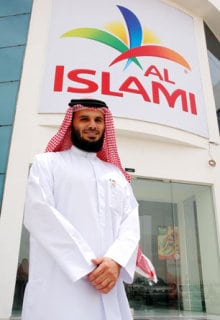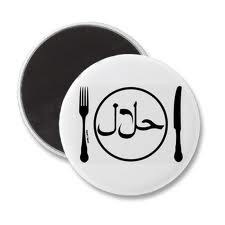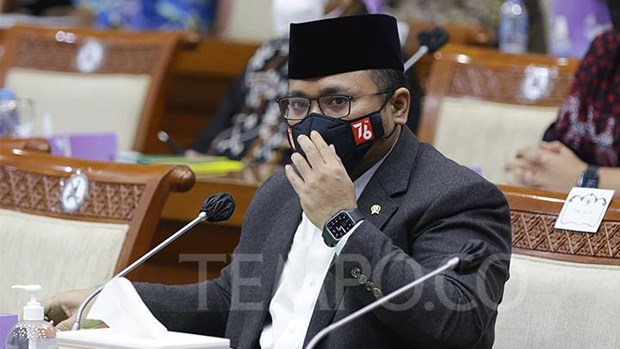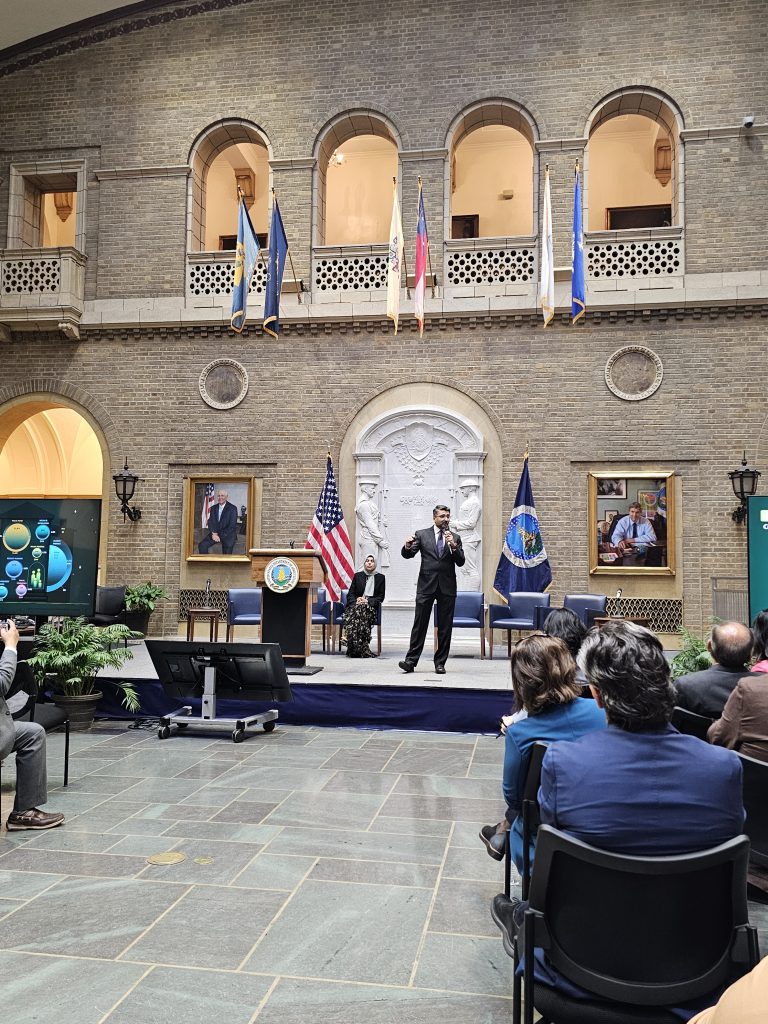Frank Kane The National
The ambition of Saleh Abdullah Lootah, the managing director of Al Islami Foods, matches that of Dubai itself.
“We want to be number one. We want to be the Nestlé of the halal food business,” he declares.
Just as the emirate has set itself a three-year target to be the hub of the global Islamic economy, so Mr Lootah has set his sights high in the food industry. To become the Sharia-compliant equivalent of the huge Swiss multinational is a challenging task.
Data presented this week at the Global Islamic Economy Summit in Dubai will give him confidence that the market is there: Muslims spent US$1.1 trillion on food and beverages last year, forecast to reach $1.6tn by 2018. That is a bigger checkout bill than China or America, the world’s top eaters.

Al Islami already has a serious pedigree in the halal business. It was founded 25 years ago by Haj Saeed Lootah, the current managing director’s uncle who was also an architect of Dubai Islamic Bank, the first Sharia-compliant bank in the world.
The company’s products are staples of the chiller cabinets of supermarkets in the UAE, exporting to many other countries across the Middle East.
Some of the biggest names in the global food sector are involved in the halal business – Nestlé themselves, Carrefour, KFC and others are fighting for the growing business. What will give Al Islami the edge in this highly competitive business?
“We provide genuine halal food. My uncle wanted to follow the word of the Quran, and also to keep it simple. Then the Islamic consumer will be the ultimate judge,” says Mr Lootah.
He has serious criticism of the existing halal industry. At the Dubai summit, he livened up an expert panel by declaring that traditional halal food was “lousy”. He insisted that industry standards have been kept low by a failure to agree to minimum standards among producers and a lack of modern marketing techniques.
“Standards were handed down from father to son and never improved. I have an image of a butcher standing behind a counter in bloody clothes with a knife in his hand saying ‘and what would you like today?’ It is not the way a modern business should be run,” he says.
He adds that a lack of consensus over basic methods of slaughter has hampered the industry.
“We believe halal meat should be produced by hand and by knife, but that does not mean other methods of slaughter are not halal. It should not be left to the mufti to make a ruling. There should be minimum standards, and then allow for variations within that.
“We believe as long as the consumer is clearly told the origins of the product, he or she will make the right decision. Ultimately the consumer is the best mufti,” he says.
But Mr Lootah believes the Islamic food industry is about more than a debate on slaughtering methods. “We have to do this right thing by all the stakeholders, consumers, suppliers and society at large. We must treat all of them according to Sharia principles,” he says.
“For example, labelling is all important. You have to give the consumer all the information they need to make the right choice. The sell-by date on the product has expired … Is this food still halal? Of course not. Stakeholders must be treated ethically.”
The Islamic world imports most of its food, especially in the Middle East and mainly from non-Islamic countries, which supply 91 per cent of annual imports valued at $15.4 billion.
So ensuring standards are maintained in suppliers is all important. Al Islami has Sharia-compliant operations in Brazil and Australia, its two biggest suppliers, as well as at its main production facility in Dubai. “There are sometimes supply issues, but it’s usually because people don’t understand the principles of halal, and can be resolved fairly quickly. We keep these parts of the business under tight control,” says Mr Lootah.
From the UAE, it exports to the rest of the GCC, to Pakistan and Iran, and to Islamic communities in Europe. But most of its business, some 80 per cent or so Mr Lootah estimates, is in the UAE.
One theme to emerge from the Dubai summit was the lack of connectivity between the world of Islamic finance and other aspects of the halal economy, especially food. Islamic banks were failing in their task of facilitating growth in halal industries.
“There has been a problem, but I think it is being solved. The banks are backing us not because they love me or they love halal, but because they see it’s a commercial matter,” says Mr Lootah.
To achieve his ambition, he admits, he has some way to go. Annual turnover is about Dh700 million, a long way off the multibillion revenues of his would-be peers, though still achieving what Mr Lootah calls “a good handsome profit”.
But Al Islami has high targets.
“We are here, and we are ready to go global,” Mr Lootah says.



